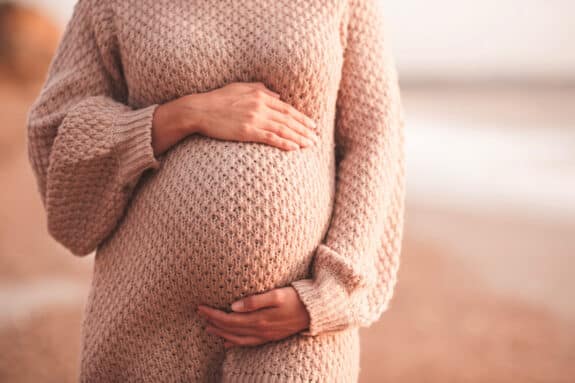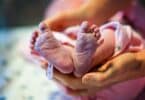Parenthood is an incredible journey, but it’s no secret that it comes with its fair share of stress, impacting every aspect of a parent’s well-being.
Despite the undeniable toll parenthood takes on health, there’s no standardized measure for gauging the biological toll of pregnancy. However, a new study led by Yale University researchers offers insights into the cellular aging process during and after pregnancy.
Exploring how human DNA undergoes molecular changes over time, known as biological aging, researchers found that carrying a child exerts significant strain on the body’s cells, akin to major surgeries or illnesses, causing cellular aging to accelerate.
The good news is that this stress-induced aging may not be permanent. Research suggests that, unlike our chronological age, our biological age can pause or even reverse once the stressful period ends.
Analyzing blood samples from 119 women before, during, and after pregnancy revealed a remarkable phenomenon: a noticeable reversal of biological aging following childbirth. Some breastfeeding mothers even experienced a significant rejuvenation, with their biological age reverting to levels predating conception.
While these findings suggest the body’s resilience to the rigors of pregnancy, lead researcher Kieran O’Donnell underscores the need for further investigation into the underlying mechanisms. Questions remain about the long-term implications for maternal health and whether these effects persist across multiple pregnancies.
Furthermore, environmental factors can leave lasting marks on our genes through epigenetic changes, serving as a biological clock for aging. O’Donnell’s study indicates that pregnancy may accelerate these changes, with mothers’ cells accumulating approximately 2.5 years’ worth of epigenetic modifications over just 18 weeks of gestation.
Interestingly, the study found that pregnancy-related weight gain did not significantly contribute to these changes, although a mother’s pre-pregnancy BMI was linked to increased cellular aging during pregnancy.
Despite the sleepless nights and physical strains, the arrival of a newborn brings relief to the mother’s body, leading to a substantial reduction in biological age postpartum, often exceeding the initial increase observed during pregnancy. For breastfeeding mothers, this rejuvenation effect may be even more pronounced, potentially reversing biological age to levels lower than before pregnancy.
These findings, published in Cell Metabolism, shed light on the impact of pregnancy on cellular aging and open avenues for further research into maternal health and well-being.
More Pregnancy News:







